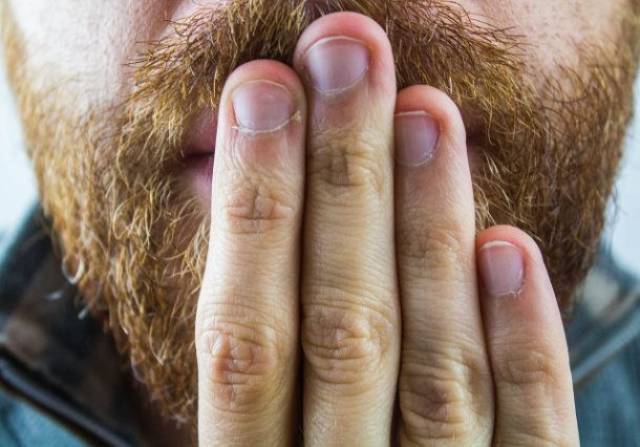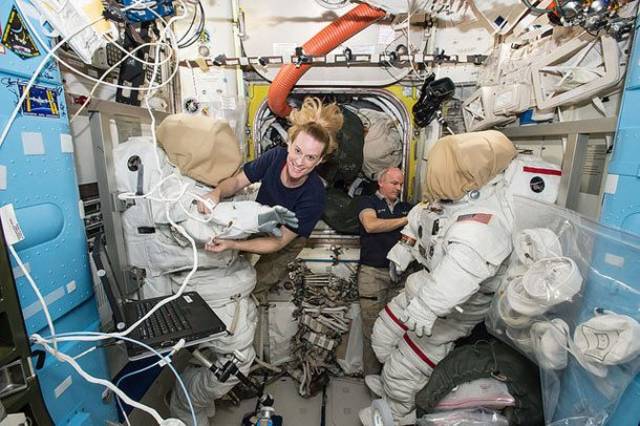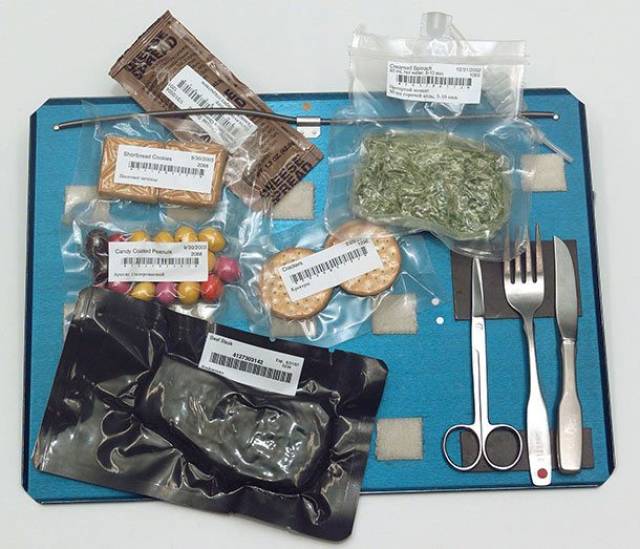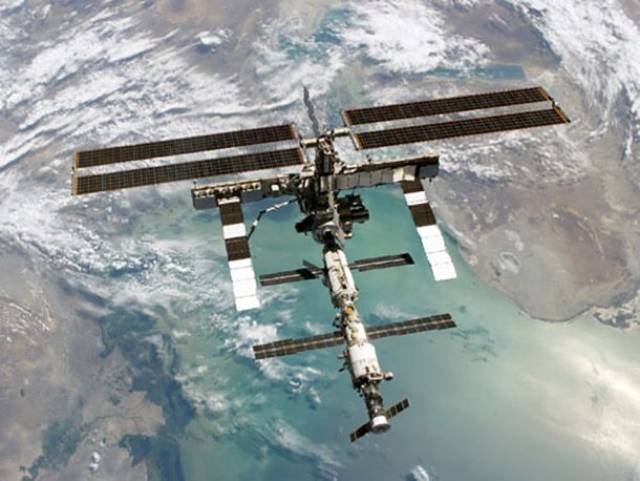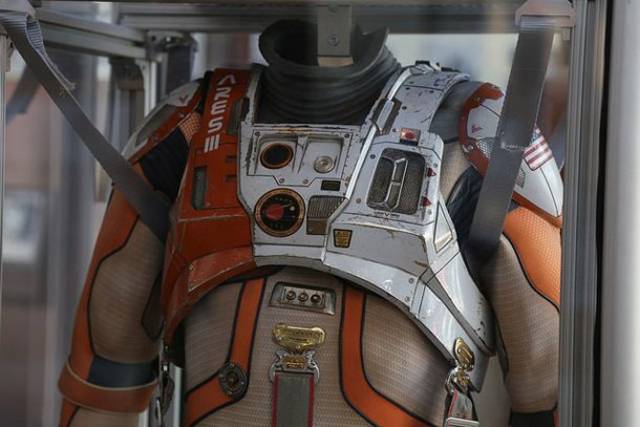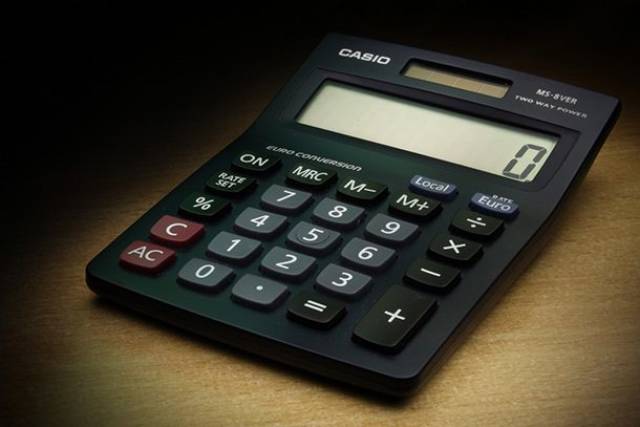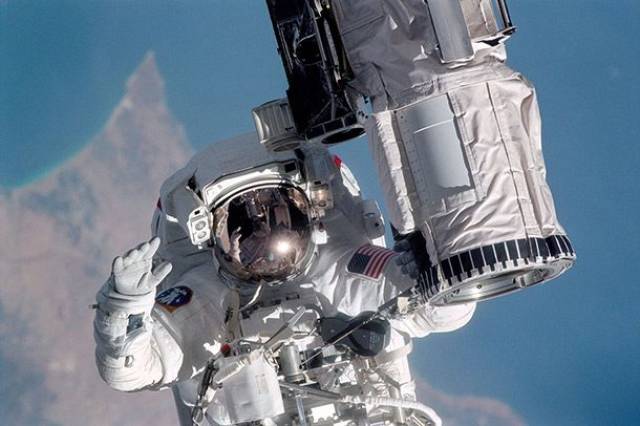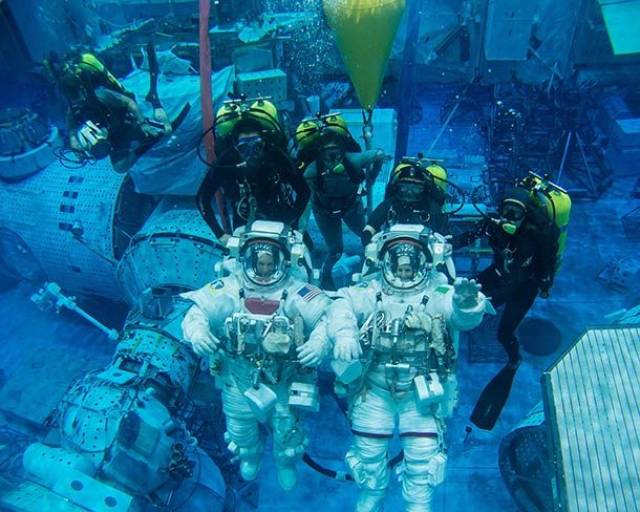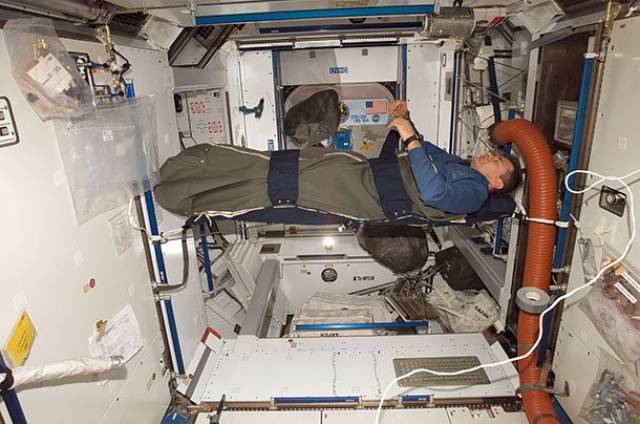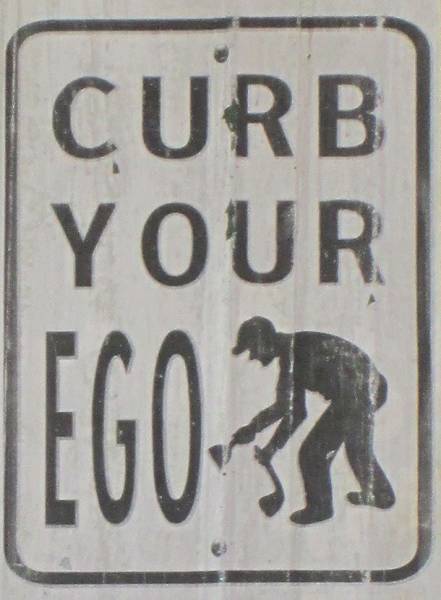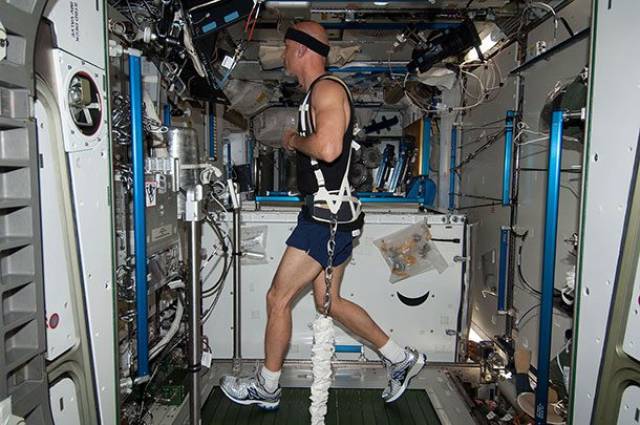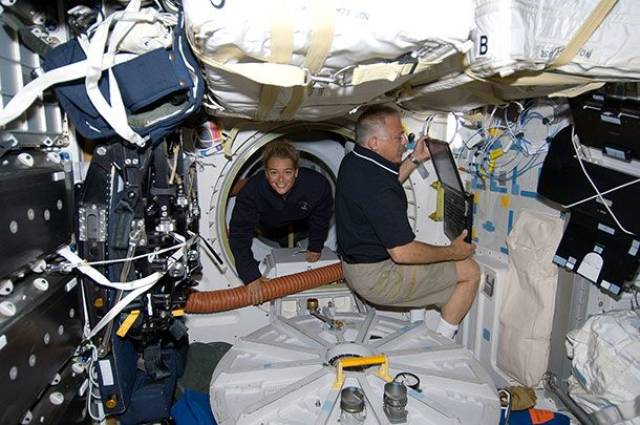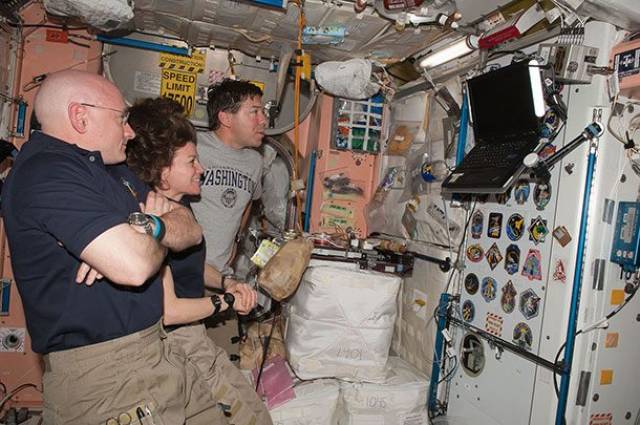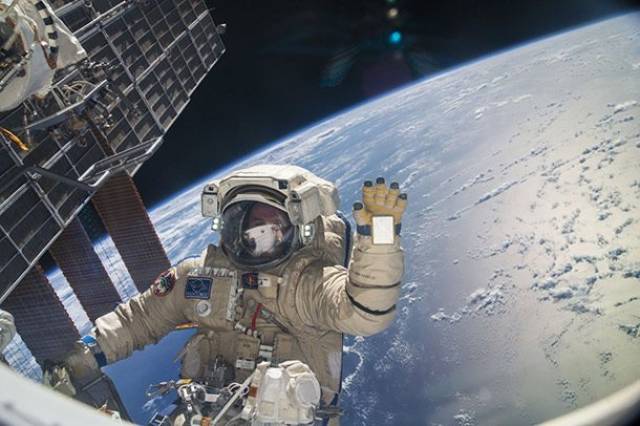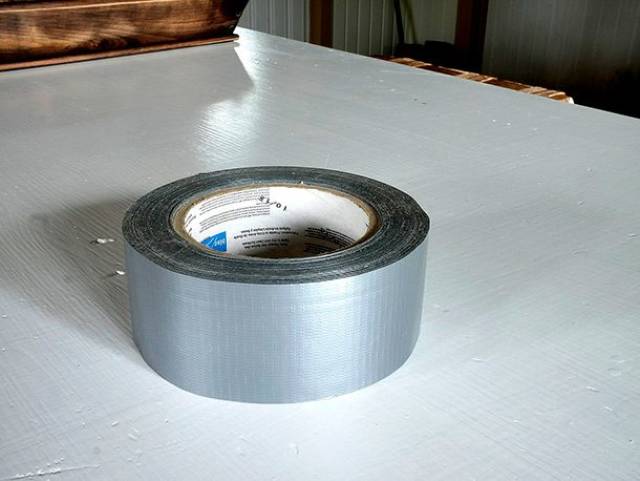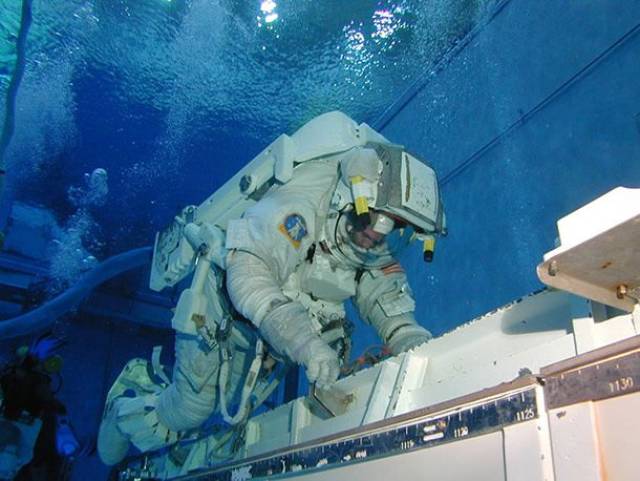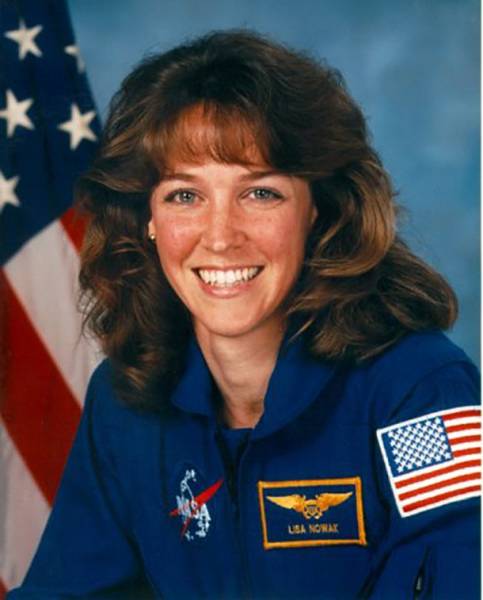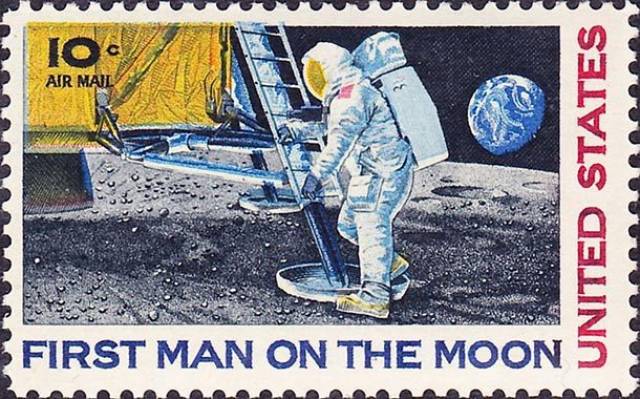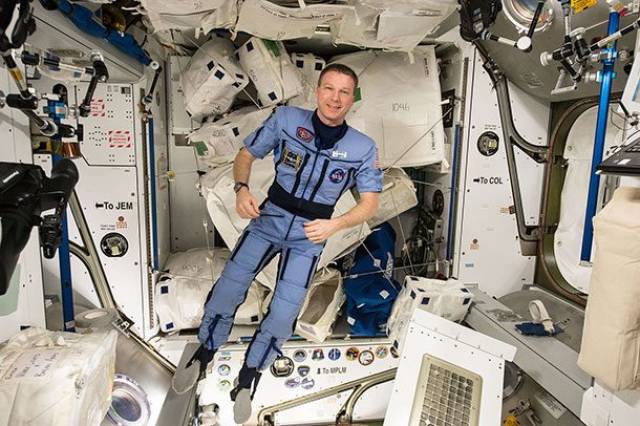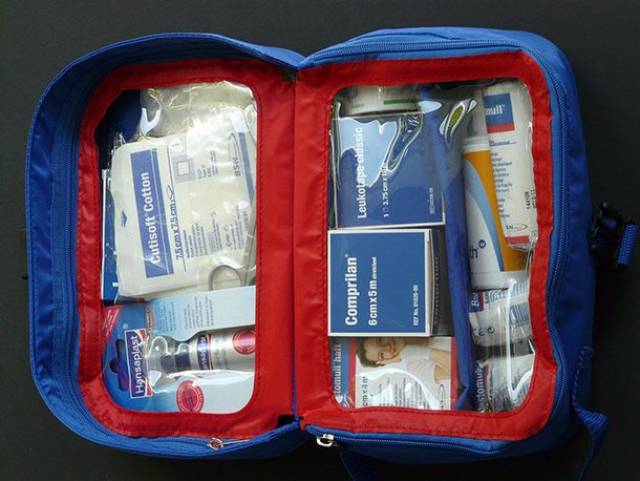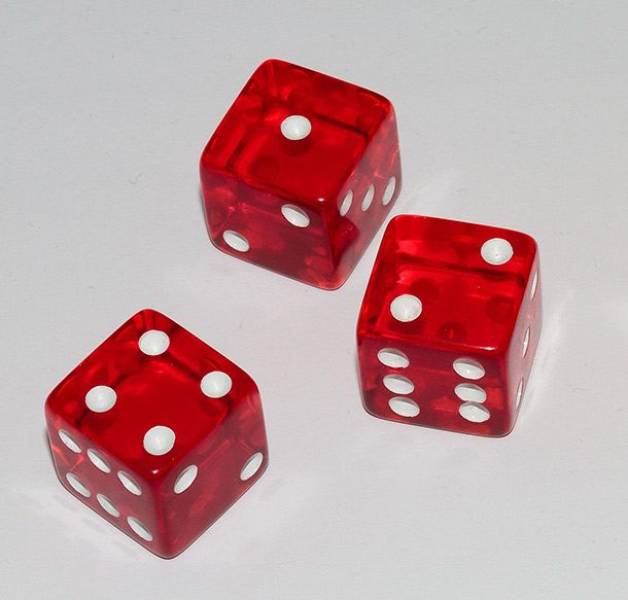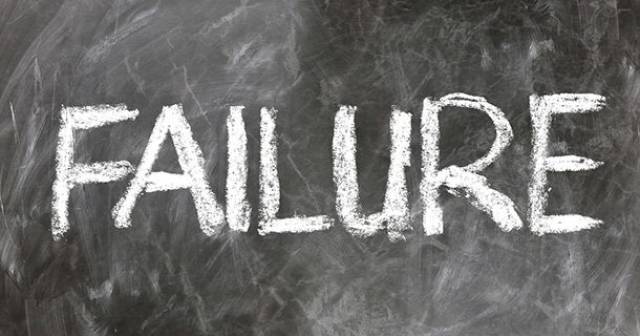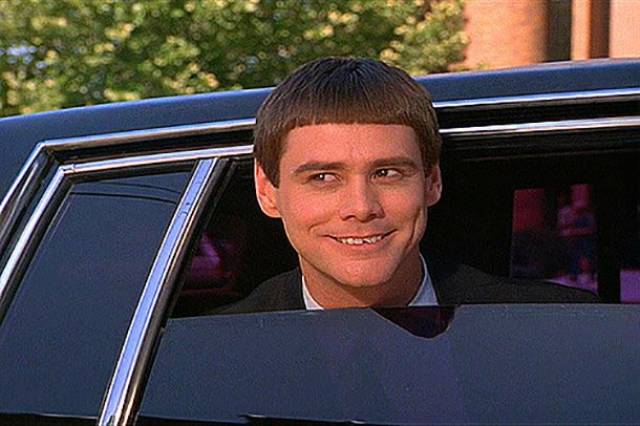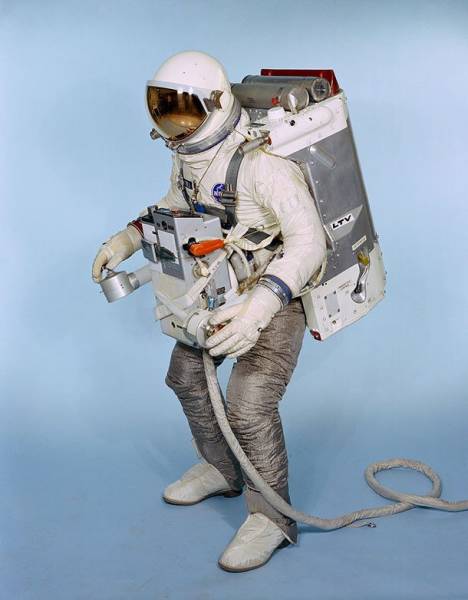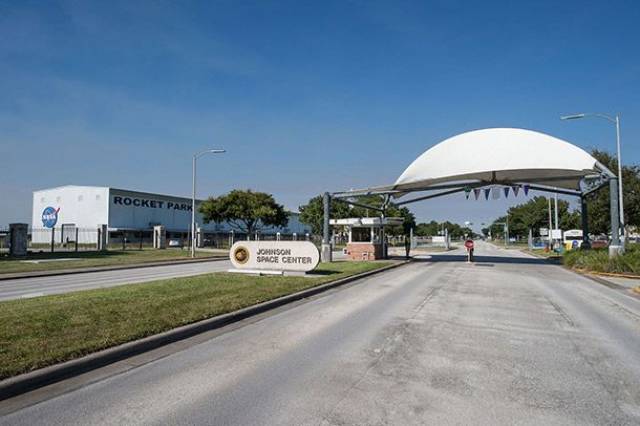Burping
It may seem like a weird concept, but burping in space is impossible. At least, if you do burp, you’ll basically throw up. One astronaut figured out a way to burp by pushing himself off a wall, creating an artificial gravity of sorts.
Vomit
Speaking of vomit, most astronauts have thrown up in space and have various ways to deal with it. In fact, many astronauts spend ten minutes a day on a machine to train their brain to not get disoriented and throw up.
Freeze-dried shrimp cocktail
Eating in space also has its challenges. Some of the food isn’t that good, and many astronauts admitted eating freeze-dried shrimp cocktail for weeks. Apparently, it was the only meal that kept its flavor and texture through the freeze drying process.
Odor
Space isn’t immune from bad smells. Over the years, astronauts have told stories of space shuttles and space modules smelling rank. Fortunately, the ISS is equipped with an air-filtration system to help keep the bad smells to a minimum.
Movies make it look easy
Movies often make space travel glamorous and easy, but it’s anything but. In fact, rookie astronauts often struggle with zero gravity to the point where they constantly crash into walls and even crack their helmets.
Be a zero
Astronauts share a few secrets to their success, including doing things that might seem contrary to common sense. For instance, they suggest trying “to be a zero by listening to others rather than always having an opinion about something. Learning from listening, they say, helps them become more successful.
Sneezing
Imagine having a space suit on and getting the urge to sneeze. The last thing you want is to have snot all over your visor. So, to solve this problem, they tuck their heads up to their chest and sneeze down. It’s still pretty gross but better than the alternative.
Being in water isn't like being in space
We all know astronauts train in water to simulate zero gravity. The problem is that being in water is nothing like being in outer space. The buoyancy is different and water provides resistance. Most of the time, they’re tested underwater for other things like working under pressure in a difficult environment.
Wake-up Music
To wake up and realize they’re still in a space station rather than comfortable on Earth, mission control or the astronaut’s friends and will pick a selection of music. Sometimes the wake-up call will just be a piece of dialog from a movie or television show.
Don't exaggerate
Another secret to an astronaut’s success is to not exaggerate. That seems easy enough until you realize it’s part of your own job. Anyway, what they mean is you should tell it like it is and never oversell your own importance.
Relay races
Astronaut Steve Swanson ran a relay race in space. How, you might ask? He strapped in and ran on the treadmill while his teammates ran from Fort Collins, Colorado to Steamboat Springs, Colorado. Swanson was aboard the ISS at the time and to let his team know he was finished, he’d call them using a cell phone.
Jump scares
Since floating around a space station doesn’t produce much sound, it’s super easy to sneak up behind fellow astronauts and scare them half to death. Astronaut Jerry Linegar especially enjoyed doing this.
Growing taller
When astronauts spend a long amount of time in space, the zero gravity effectively makes them grow taller. Usually, they grow about two inches. They shrink down to size when they arrive back on Earth and the back pain is reportedly terrible.
Space smells
Not only does the inside of a spaceship smell but space smells as well. Various astronauts have claimed it smells like raspberries, metal, or meat. Some have even said it smells like rum.
Some Restraint
On the off chance an astronaut goes totally nuts, NASA’s official protocol is for fellow astronauts to tie them up with duct tape, harness them with a bungee cord, and inject them with tranquilizers.
Astronaut training is brutal
Astronaut training is no cakewalk. In one specific training exercise, they were shipped out to the freezing tundra of a Moscow forest to survive on their own. It was all in preparation for a trip to the ISS.
Return to Earth
After the strain and struggle of being an astronaut in space, some don’t acclimate very well to regular life on Earth afterward. For instance, after leaving NASA, Buzz Aldrin had serious bouts with alcoholism and depression, got divorced twice, and became a Cadillac salesman. Lisa Nowak drove 900 miles no-stop from Houston to Orlando to attack Colleen Shipman, the new girlfriend of Nowak’s ex-boyfriend, astronaut Bill Oefelein.
Life Insurance
Given the risk of an astronaut’s life, it’s way too expensive to have life insurance policies. This was especially true for the Apollo 11 astronauts. To get around this particular problem, they all signed memorabilia, like stamps, and entrusted them with individuals before launching into space. This way, if they died, their families could sell it and have money.
Space Illness
When astronauts enter space, their physiological systems are immediately disturbed. Some have experienced space illnesses, like cardiovascular deconditioning, acute radiation syndrome, hypobaric decompression sickness, and osteoporotic fractures.
First Aid
On top of space illnesses, astronauts are always under threat of injury. Since they don’t have access to hospitals, and onboard doctors could be incapacitated, all astronauts have to have medical training to respond to medical emergencies.
The Odds
It might seem like being an astronaut is the hardest thing they have to do, but the truth is becoming one is way harder. The odds are horribly against you. NASA claimed out of 6,000 applicants, they chose eight.
Visualize Failure
Most astronaut’s do the opposite of visualizing success. They visualize failure. This involves trying to determine everything that could go wrong and plan to solve those problems. By being prepared for all outcomes, they can be ready when the situation arises.
Don't be Ignorant
Astronauts view fear as mostly stemming from ignorance. To counteract fear, they believe knowledge is power. They give an example of fearing spiders and how most spiders aren’t dangerous but people act like all of them are. You can counter-act that fear by studying the various kinds of spiders.
Farting
Of course, astronauts, being humans, fart in space. Their bodysuits are equipped with a LiOH filter, removing the methane and carbon dioxide. This helps get rid of the smell but more importantly saves their lives. The gases produced from intestinal bacteria are technically flammable and are hazardous in a closed container.
Normal Life
Contrary to popular belief, astronauts aren’t only on the job when they exit Earth’s atmosphere. Most of the time, their job is just like any other, commuting to work at the Johnson Space Center in Houston and going home after work is done to take out the trash at home.

